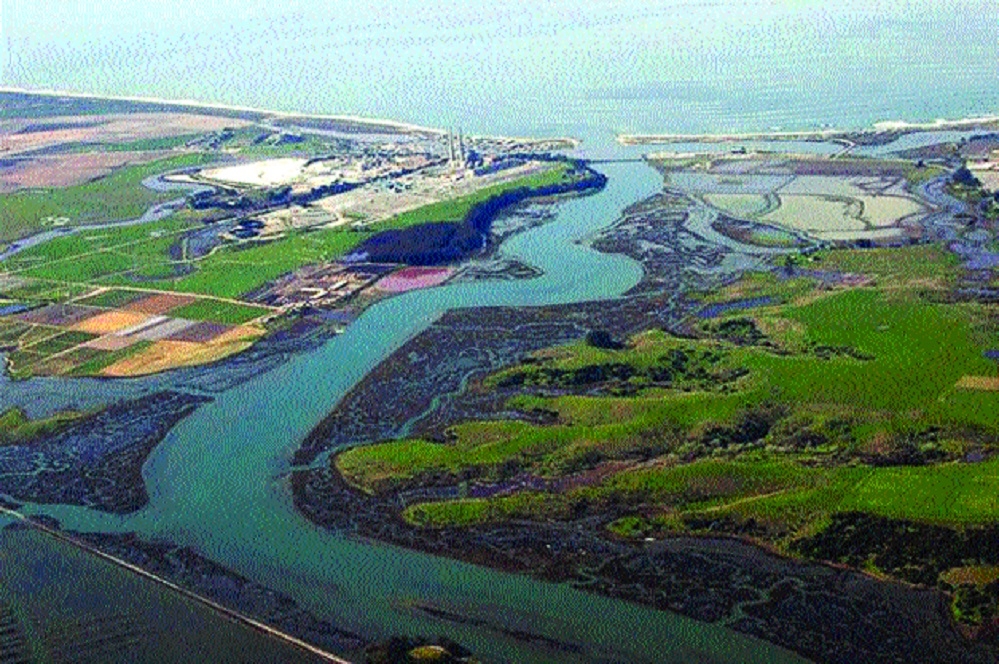Of the ocean’s main attribute
| Date :04-Feb-2025 |
By Vijay Phanshikar :Apuryamanam achalampratishthamsamudramapah pravishanti yadvat /Tadvat kamayam pravishanti sarvesa shantim apnoti na kama-kami //(Just as the ocean remains undisturbed by the incessant flow of waters from rivers merging into it, likewise the sage who is unmoved despite the flow of desirable objects all around him attains peace, and not the person who strives to satisfy desires.)-Shrimad Bhagwad Gita,Verse 70, Chapter 2
THE description of the ocean in the first part of the verse paints a wonderful picture of the ability of the sea to accommodate the incessant flow of waters from all rivers of the globe -- and still remain
undisturbed, like the sage who remains unaffected by vagaries and vigours of life !
The rivers -- each river -- rush and flush and gush into the ocean on a non-stop basis, bringing with them the
different wash-aways from different lands and terrains that host different people and different cultures on the river-banks.
The view near the river’s entry-point into the sea is overwhelming, to say the least. The river-water as if pierces into the rim of the oceanic expanse and travels deep at least for a few hundred meters in the most
picturesque, most colourful manner.
It’s sheer poetry, so to say.
There is the river having flowed for measureless distances through different terrains surmounting obstacles, running around mountains, at times jumping from cliffs and over precipices ... ! And then she -- the river -- rushes forward in great passion to meet him -- the boundless ocean! He spreads his arms and welcomes her -- but with an aloof warmth!
Every moment of the day and night, countless rivers thus merge with the ocean -- since time immemorial. The ocean is all there to receive them, accommodate them, absorb them. And yet, he -- the ocean -- remains the same, unaffected, sort of unmindful.
No matter which part of the globe, the ocean remains the same in taste and culture and conduct -- his salinity remaining almost the same, his dignity unaltered, his sanctity unpolluted.
Each confluence -- of the river and the ocean -- around the world has more or less the same style, more or less the same signature marked by the river’s surrender and the ocean’s most accommodative and most respectful acceptance.
That the moment of the river meeting the sea, melting into his vast expanse, has generated a lot of poetry and art since Time began, is one testimony to the great communion. It has generated a lot of deep thought of science for the humanity for ages. But that communion also has
fascinated even the sages among humans who wrote hymns in the praise of that
phenomenon, in appreciation of how forces of Nature unite to make the planet the best place in the vast and ever-expanding
universe.
True, the Earth is made up of over 70 per cent of water, with the landmass of mere 30 per cent. But what makes this remarkable combination survive Time is the
presence of the ocean as the balancer of the planet in the otherwise floating
universal circus. Scientists have tried to imagine scenarios of the Earth without ocean and its feeding by the rivers. And each of those attempts has produced only one inference -- it is not possible to picture the unimaginable. For, without water, the elements have no reason to be there, they surmised.
Let us leave aside the reason of science -- and delve into the realm of spiritual
reality, like does the Bhagwad Gita verse. The message is clear: Nature expects an elevated human being to conduct himself or herself like the ocean -- accommodative yet unaffected by vagaries and vigours of life -- which is its main attribute.

